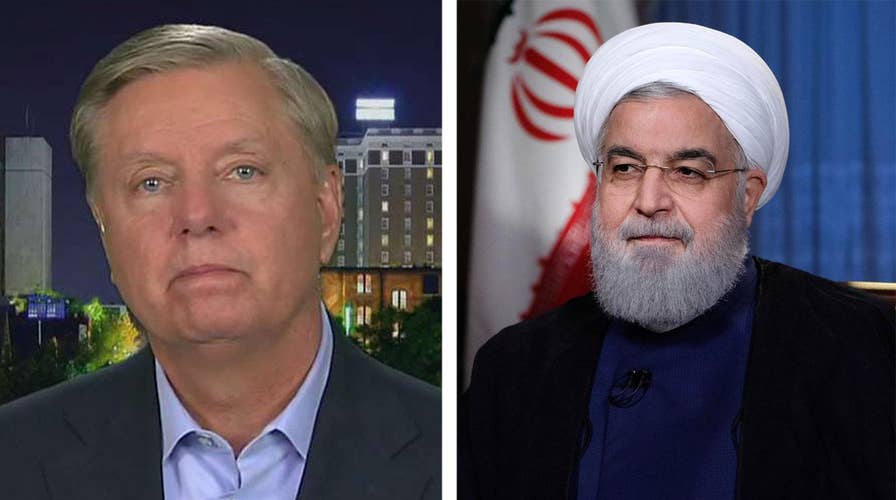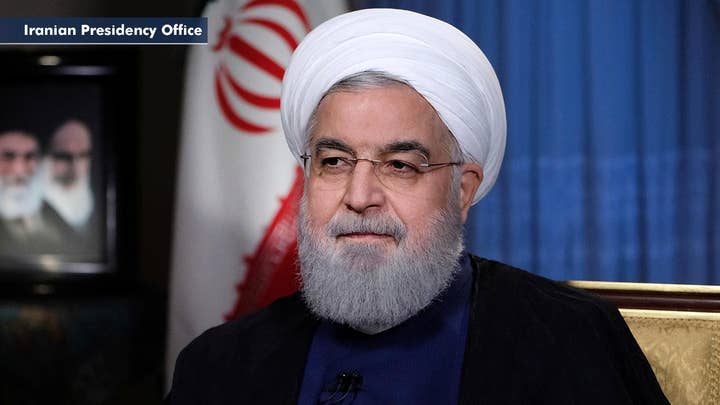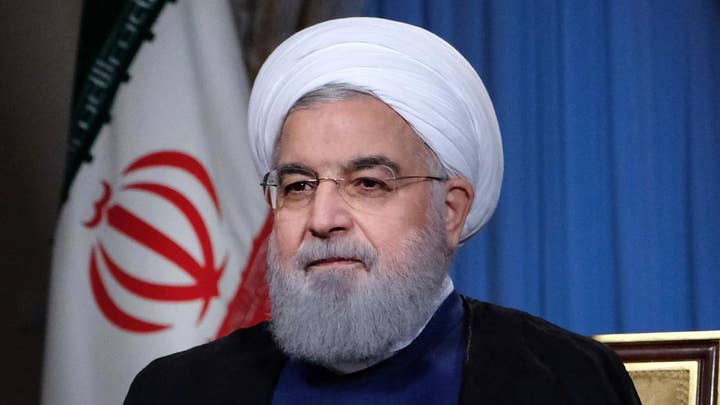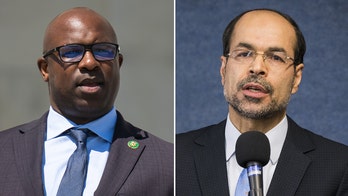Sen. Lindsey Graham advocates for regime change in Iran
Republican senator from South Carolina urges President Trump to 'stay tough' with Tehran.
The U.S. campaign to rein in Iran has scored a victory in the German financial sector, after the Deutsche Bundesbank− the country’s central bank− imposed a rule stopping a $400 million cash delivery to Tehran.
Iran's cash-starved economy desperately needs hard currency ahead of crippling U.S. bank sanctions that will be introduced in November.
Germany allows the Iranian-owned European-Iranian trade bank (EIH) to operate in Hamburg. The EIH holds more than $400 million that Tehran wants to receive in cash ahead of a second wave of U.S. sanctions due in November that impact banks and Iran’s energy sector.
The Deutsche Bundesbank has cooperated with the EIH in the past to circumvent U.S. sanctions on Iran. The U.S. and the European Union previously sanctioned the EIH for its role in advancing Iran’s nuclear and missile programs. The sanctions on the EIH were lifted after the world powers reached an agreement to curb Iran's nuclear program in 2015.
IRAN CROWDS REPORTEDLY CHANT 'DEATH TO THE DICTATOR!' AS US SANCTIONS INCREASE ECONOMIC UNREST
But President Trump effectively tore up the “decaying and rotten” deal in May and vowed to impose greater sanctions on the regime.
The disclosure in July that German Chancellor Angela Merkel's government was seeking to circumvent the pending sanctions triggered the U.S. ambassador to Germany to urge her government to stop the massive payment transfer.
“We are grateful to our German partners for recognizing the need to act.
Iran’s malign activities throughout Europe are a growing concern,” Richard Grenell, the U.S. ambassador to Berlin, told FoxNews.com. Grenell, a former Fox News contributor, led the campaign to persuade German authorities to prevent the cash transfer.
The U.S. embassy to Berlin tweeted: "Close partnership = results. Thank you to our German counterparts for acting to stop Iran’s activities."
The German central bank's new anti-Iran rule is slated to go into effect on August, 25.
Chancellor Merkel's efforts to send more than $400 million to the mullah regime echoes the Obama administration’s 2016 delivery of $1.7 billion in cash to Tehran, as part of a ransom to secure the release of American hostages held by the Islamic Republic.
President Trump has repeatedly slammed his predecessor for sending the cash.
The United States government has classified the Islamic Republic of Iran as a top state-sponsor of terrorism. The Merkel administration is going to great lengths to promote trade with Tehran. The German Economy Ministry said on Monday “export guarantees and investment guarantees from the Federal Ministry of Economic Affairs are still available to companies” that want to operate in Iran.
Germany's government provides 57 companies with more than $1 billion in export and investment guarantees for their business with Iran.
TRUMP RENEWS 'BITING SANCTIONS' AGAINST IRAN, WARNS COUNTRIES DOING BUSINESS WITH TEHRAN
Major German multinational companies, however, are voting with their feet.
Automobile manufacturer Mercedes-Benz announced on Tuesday that it had frozen all business with Iran due “to applicable sanctions.” The first wave of U.S. sanctions kicked in on Tuesday and will impact Iran’s automobile sector, as well as trade in precious metals.
Sportswear giant Adidas meanwhile followed the lead of its U.S. competitor Nike and pulled the plug on its business with Iran.
Adidas said in a statement last week that it will not extend commercial agreements with Iran's soccer association. Iran's state- controlled media reported that Adidas withdrew from Iran's market because it fears damage to its business in the U.S.
Peter Kohanloo, the president of the U.S.-based Iranian American Majority organization, told FoxNews.com: “Germany, France and the UK always talk about human rights and democracy, but by resisting more sanctions, they’re actively opposing a growing revolution inside Iran to replace one of the most egregious human rights violating dictatorships in the world.
“Germany is making a huge mistake by injecting much-needed cash into the mullahs’ resistance economy as they murder Iranian protesters.”
IRAN'S WIDESPREAD AND GROWING PROTESTS PUSH CITIZENS TO BRINK
In a joint statement on Monday, Federica Mogherini, the EU’s foreign policy chief, and the foreign ministers of Britain, France and Germany said: “We are determined to protect European economic operators engaged in legitimate business with Iran.”
The EU implemented a “blocking statute” to insulate EU companies active in the Islamic Republic from American sanctions.
The Association of German Chambers of Commerce and Industry said on its website that in the first five months of this year, exports to Iran dropped by four percent.
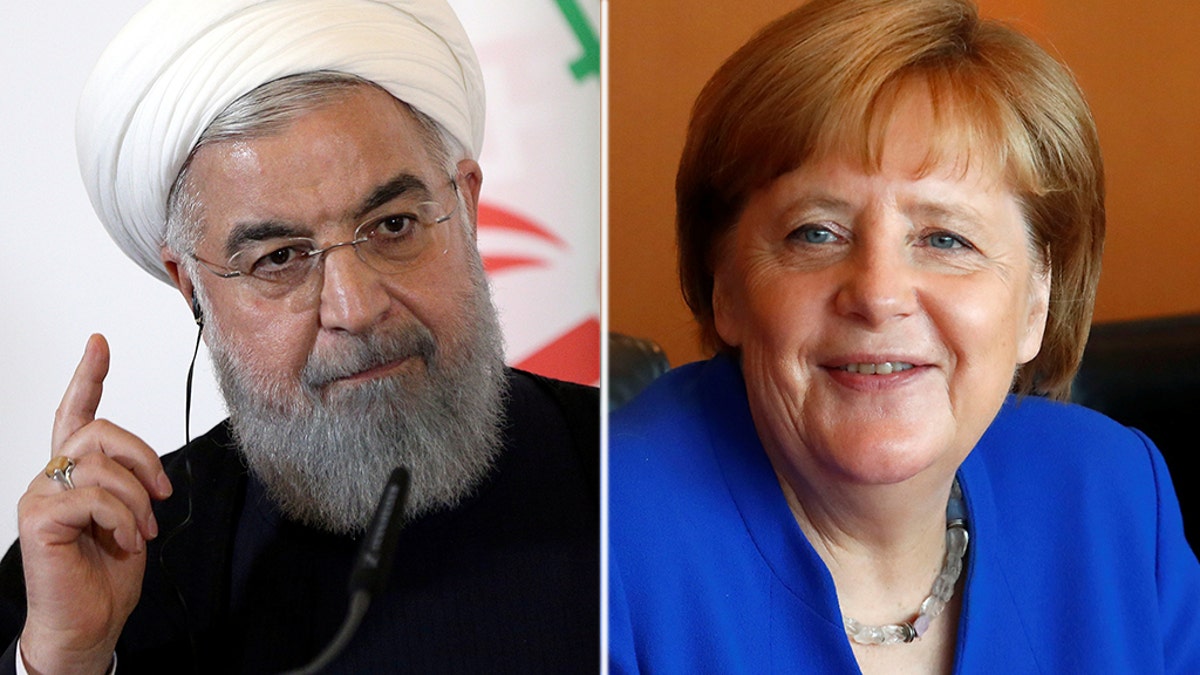
Angela Merkel's government had been seeking to circumvent pending U.S. sanctions; the sanctions have heaped pressure on Iranian President Hassan Rouhani (left) (Reuters)
Over the last few years, 120 German companies have opened offices in Iran, according to the German industry group, but that trend is sinking.
German exports to Iran climbed to $3.96 billion in 2017, up from $2.89 billion in 2016.
